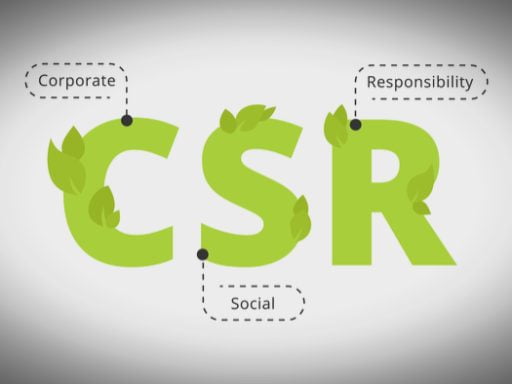In the fast-paced workplace of today, the concept of a transparent supply chain has emerged as a critical component of sustainable and ethical business practices. A transparent supply chain not only builds trust across stakeholders, but it additionally significantly enhances brand reputation. Companies can demonstrate accountability, integrity, and commitment to ethical sourcing and manufacturing processes. They can do this by providing transparency into the journey of their products, from conception to delivery.
Understanding the Essence of a Transparent Supply Chain
A transparent supply chain includes the continuous flow of information and visibility at all stages of production, distribution, and consumption. It entails providing relevant information about suppliers, manufacturing processes, labor practices, and environmental impact. By adopting transparency, businesses can tackle concerns about authenticity, quality, and social responsibility, fostering stronger relationships with ethical consumers.

The Positive Impact on Brand Reputation
Transparency in the supply chain can lead to a variety of benefits, the most notable of which is an improvement in brand reputation. Consumers today are more discerning and conscientious, seeking out brands that share their values and beliefs. Transparent supply chains demonstrate a company’s credibility and dedication to sustainability, which resonates strongly with socially and environmentally conscious customers. Such transparency fosters trust, loyalty, and brand advocacy, establishing companies as ethical business leaders.
Implementing Sustainable Practices for Transparency
Transparency in the supply chain necessitates a collaborative effort to implement sustainable practices throughout the process. Companies can begin by conducting comprehensive audits of their supply chains to identify areas for development and potential risks. Using technology like blockchain and traceability systems can increase transparency by providing immediate insight into product origins and movements.
Furthermore, we can cultivate collaboration and partnerships with suppliers. Based on mutual principles of sustainability and ethical behavior, we can do this. This approach increases transparency and accountability throughout the supply chain. Implementing strong ethical sourcing policies is a critical step. This includes ensuring fair labor practices. Lowering carbon footprints and reducing waste are also critical steps. These actions contribute to creating a transparent and sustainable supply chain.
Supply Chain Management
Supply chain management (SCM) involves planning, coordinating, and executing product flow from suppliers to end users, a crucial aspect of modern business operations. Effective SCM entails optimizing processes to ensure on-time delivery, reduce costs, and improve overall efficiency. Businesses can gain a competitive advantage in the marketplace by streamlining procurement, production, distribution, and logistics processes. Businesses leverage technology for data-driven decisions, demand predictions, and reduced supply chain risks. Secure supply chain management practices help to improve customer satisfaction, reduce delivery times, and increase profitability.

FAQs about Business Certifications
🤔 What is a transparent supply chain?
Answer: A transparent supply chain allows for free information flow: During all phases of manufacture. Through transportation and during consumption. This visibility extends to: Suppliers. Manufacturing processes. Environmental impact. And social impact.
🤔 How does a transparent supply chain enhance brand reputation?
Answer: A transparent supply chain builds consumer trust and loyalty by displaying accountability, integrity, and a dedication to ethical practices, ultimately improving brand reputation.
🤔 What are some tips for implementing sustainable practices in the supply chain?
Answer: Conduct rigorous audits, use technology for traceability, work with suppliers, implement ethical sourcing standards, ensure equal treatment for workers, reduce carbon footprint, and limit waste.
🤔 Why is sustainability important in supply chain management?
Answer: Sustainability in supply chain management is critical for ensuring long-term profitability, reducing environmental impact, meeting consumer demand for ethical products, and improving brand reputation.
🤔 How can businesses benefit from embracing transparency in the supply chain?
Answer: Transparency can contribute to increased consumer trust, loyalty, and brand support, as well as competitive difference, better risk management, and stronger stakeholder relationships.
🤔 What role does a transparent supply chain play in promoting sustainability?
Answer: A transparent supply chain promotes accountability, ethical behaviors, innovation for sustainability, and industry collaboration to address global concerns.
Sustainable Supply Chain
In recent years, there has been a greater emphasis on developing sustainable supply chains that priorities environmental responsibility, social equality, and economic feasibility. A sustainable supply chain incorporates environmental, social, and economic factors throughout the product’s lifecycle, from raw material procurement to end-of-life disposal. Organizations that embrace sustainability in the supply chain can improve brand reputation, meet regulatory requirements, and future-proof their company against changing customer demands. Sustainable supply chains help the environment and society while also promoting long-term corporate performance and resilience.

Conclusion
Finally, in today’s socially and ecologically sensitive society, creating a transparent supply chain is a moral obligation as well as an economic one. Companies that prioritize transparency and sustainability can not only protect their brand reputation, but also help to create a more ethical and equitable global supply chain environment.








